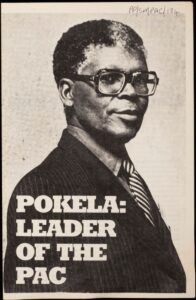 The Gale digital archive Decolonization: Politics and Independence in Former Colonial and Commonwealth Territories includes primary sources related to the complex process of decolonization across 60 former colonial territories and Commonwealth nations in the 20th century. The core content consists of over 250,000 pages of rare pamphlets, newsletters, correspondence, posters, and other ephemera produced by political parties, pressure groups, trade unions, and grassroots movements. This includes the Political Pamphlets collection from the Institute of Commonwealth Studies, African Trade Union pamphlets from Nuffield College at Oxford, and the Marjorie Nicholson Papers on international trade unionism.
The Gale digital archive Decolonization: Politics and Independence in Former Colonial and Commonwealth Territories includes primary sources related to the complex process of decolonization across 60 former colonial territories and Commonwealth nations in the 20th century. The core content consists of over 250,000 pages of rare pamphlets, newsletters, correspondence, posters, and other ephemera produced by political parties, pressure groups, trade unions, and grassroots movements. This includes the Political Pamphlets collection from the Institute of Commonwealth Studies, African Trade Union pamphlets from Nuffield College at Oxford, and the Marjorie Nicholson Papers on international trade unionism.
This archive is structured into thematic sections that address different facets of decolonization. These sections cover topics such as the rise of nationalist movements, key figures who led their nations to independence, and the residual impacts of colonial rule including economic dependencies and the development of new national identities. Additionally, it explores the involvement of international bodies like the United Nations in supporting decolonization efforts.